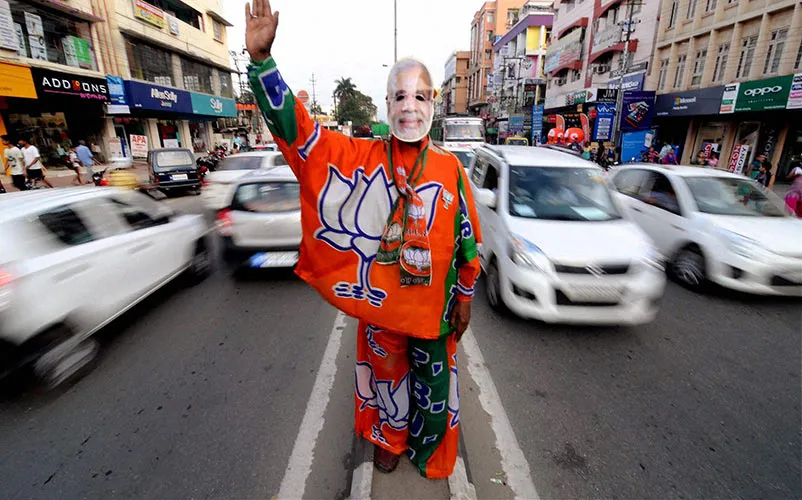The results of the 2016 state elections could not be more ideal for the Central Government. With the grand old party now reduced to controlling five states in India, BJP’s ambitions of routing the Nehru-Gandhi dynasty is now near complete. While the Congress party is now licking its wounds and hopefully tinkering with its internal mechanisms, the BJP must now start focusing on many pending reforms it had promised to do.
Excuses of Parliament being disrupted, consolidation of power in regional elections and inviting foreign participation and investment cannot compensate for the immediate needs of the country. Karnataka does not poll till 2018, which gives the NDA enough time to concentrate on economic reforms, rather than another election campaign, like it has been doing since its election in May 2014.
With 2019 only three years away, and both UP and Karnataka elections in between, this is perhaps the best time for PM Modi to strongly push his economic agenda. Acting too late or not acting at all poses the risk of the BJP suffering the same fate as its predecessor in the next general elections.
Don’t delay GST anymore
The first step for Prime Minister Modi would be to somehow pass the GST Bill still pending in Parliament. With most experts dismissing the possibility of this Bill passing in this first term, if it were to be passed, post pragmatic negotiations and compromises, the GST can be a game-changer both for India’s economy and for the BJP’s future politics.
The implementation of the GST itself will require some time and so for the positive effects to trickle down, it must be passed within the next parliamentary session. Delaying it could very well shift the momentum away from the BJP, by the time preparations for the next general election will need to begin.
Dealing with job crisis
The second step would be to secure its voter base now. This does not mean following the usual pre-election or post-victory slogans, billboards and chanting, this means securing and increasing the employment levels in the country. With last quarter figures showing a dismal performance in job creation, only adding 1.35 lakh jobs in all of last year, Prime Minister Modi’s campaign pledge to reduce the number of unemployed youth needs to be fulfilled.
With a million new entrants joining the job market each month, the task of enhancing skills and employing this rather large mass is daunting and can easily sway political favourability one way or the other. Job growth will occur when both the service sector and the industrial sector begin to expand, both of which are heavily dependent on FDI coming into the country. If the Government can balance out the scales between private equity investment and greenfield investments, job creation through FDI can finally become a reality.
While there are many variables attached to investment attraction and investor confidence in an economy, the most pressing need for India will be to develop its infrastructure.
Rural electrification, creation of special economic zones, improvements in telecommunications, land and labour reforms and others are all needed to attract the level of investment that can transform both the industry and employment generation in the country.
Revival of manufacturing sector
Finally, the last urgent step for Prime Minister Modi lies in his reforming the manufacturing sector. For India to be able to offer a viable alternative to the currently troubled Chinese export economy or boost its own rural demand, manufacturing reforms are the key. With both Indian exports and rural demand stagnating in the last year, the revival of India’s ailing manufacturing sector can help turn this negative around.
But for India’s manufacturing to become a globally competitive entity, a number of other reforms need to be performed as well. The archaic labour laws, for example, need to be revamped or greater consistency and efficiency in tax policies need to be instituted. The uniqueness of the manufacturing sector is that if the reforms mentioned earlier (GST, FDI, infrastructure) are to be carried out immediately, half the battle to reform manufacturing itself will have been won. Moreover, manufacturing can be the key to the needed employment generation the country requires.
For the BJP to keep the attention of the country fixed on it, it is important to be positive and believe that it can be more than a one-term government, these are essential steps the central government must commit itself to now.
This commentary originally appeared in The Quint.
The views expressed above belong to the author(s). ORF research and analyses now available on Telegram! Click here to access our curated content — blogs, longforms and interviews.




 PREV
PREV

